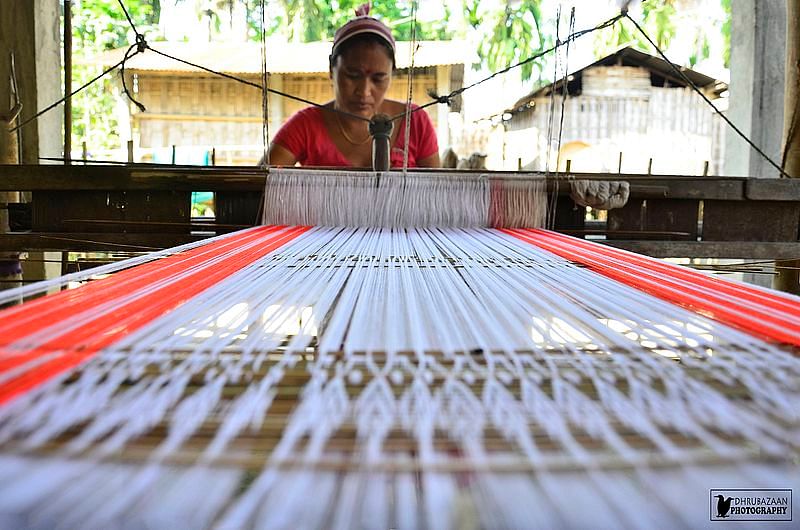Eco Museum – An Evolving Cultural Phenomenon in India, Namrata Sarmah (India, ITP 2018)
Written by Namrata Sarmah, Directorate of Museums, Government of Assam (India, ITP Fellow 2018)
It was indeed an astounding moment for me when I received my acceptance to partner with East West Center as a 2021 Innovation for Sustainable Development Fellow #EWCinnovationfellows . My programme is one of sixteen unique programmes across nine countries in Asia and the Americas the EWC will co-design and co-deliver initiatives with.
Find out more about the Innovation for Sustainable Development Fellows here: www.eastwestcenter.org
Read more about the initiative on Namrata’s website: majuliecomuseum.wordpress.com
The crux of the programme is to explore the concept of an ‘Eco museum’ in the island of Majuli, the largest river island in the world, and how the meanings generated from this interaction and discovery would be distinct from conventional modes of interactions occurring in museum spaces. The ways in which people derive meanings out of their interactions with their surroundings is immensely diverse, depending upon communities, worldview, and socio-political and economic backgrounds. This shall focus on a gradual paradigm shift from objects to individuals (Communities) that encourage long term sustainability, focusing on environmental protection, economic fairness, and social justice in the island of Majuli.

The possibilities of engaging with communities through this initiative would create a rich repository of human experiences within and without museums. Allowing a free-flowing network of conversations, dialogues and articulations would create a dynamic, inclusive and democratised curator-community experience.
I was fortunate to attend the Museum Association Conference (MAC) titled ‘Sustainable and Ethical Museums’ in 2019 conducted by ITP in Brighton, UK. Thought-provoking debates and discussions ensued on topics such as decolonisation, environment and climate change, sustainability in museums, and decentralisation in the museum discourse led me explore the concept of ‘Eco museum’ in my region and think about this present initiative with EWC. The conference made a laudable effort towards deliberating on capacity building for co-curation, global partnerships, sharing of responsibilities, mentoring and developing effective networks in the field of museum studies. This was a very visible hint towards a paradigm shift of museums from objects to individuals.
Conventionally museums have been associated with the collection of objects or materials that have cultural, religious and historical importance assigned to them. Their preservation, investigative research and their display is intended towards certain audiences, for didactic purposes or for pleasure. Museums in the early days prior to the enlightenment era, including the cabinets of curiosity were exclusive and elitist, with only those with the means or the requisite education having access to view them.
In the contemporary days, with an increasingly egalitarian and democratised world, restricting access to museums is an unpragmatic and non-viable act and hence increasing engagement and dialogue between people, museum authorities and the objects of the museums is a need of the hour. For this, museums should incise across the arbitrations of disciplinary territorialities and espouse more challenging, specialised and microcosmic worldview; not merely being limited to tangible objects and collections.

My case study, the riverine island of Majuli occupies a unique geographical location. It is surrounded by the constituent streams of the Brahmaputra river on all sides. In the pre-modern period, this provided Majuli with a modicum of isolation. And as a result, the island was privy to a unique historical trajectory and cultural matrix which sets it apart from the regions in its vicinity. In the age of globalisation and rapidly changing norms of identity, culture and livelihood, it is the need of the hour for a cautious appreciation and preservation of the intangible cultural heritage of Majuli. This calls for a multifaceted engagement with the traditional forms of knowledge in the island within the purview of intellectual property rights.
This initiative shall aim at providing a new paradigm of ecological consciousness and attempting to explore the role of museums in the age of climate crisis. This further leads to sustaining the intangible aspects of a museum- its context, its heritage, its memory along with the green agenda and sustainability a museum should be aspiring for.

My project is in sync with United Nations Sustainable Goal #11 ‘Sustainable cities and communities’ which shall also foster upon sustainability of voices of the communities. This allows the communities to voice about their own culture and heritage preservation without any interferences from outside groups. It shall showcase local assets of Majuli island to address matters of local importance, such as using local crafts and craftsmen, local practices, rituals, food habits to patronage this craft in a space like Eco museum. this must draw attention in people to the idea of climate crisis by promoting ecological literacy in framing questions of ecology. Locals are perceived as harbingers of change, and hence act as catalysts for implementation of sustainability agenda.
This Programme is generously supported by East West Center, Hawaii, USA and I hereby extend my gratitude to Lance C Boyd for providing me the opportunity to do this programme and also ITP for supporting me with resources and readings.
#SDGAction37761
#ewcinnovationfellows
Read more about the initiative on Namrata’s website: majuliecomuseum.wordpress.com
